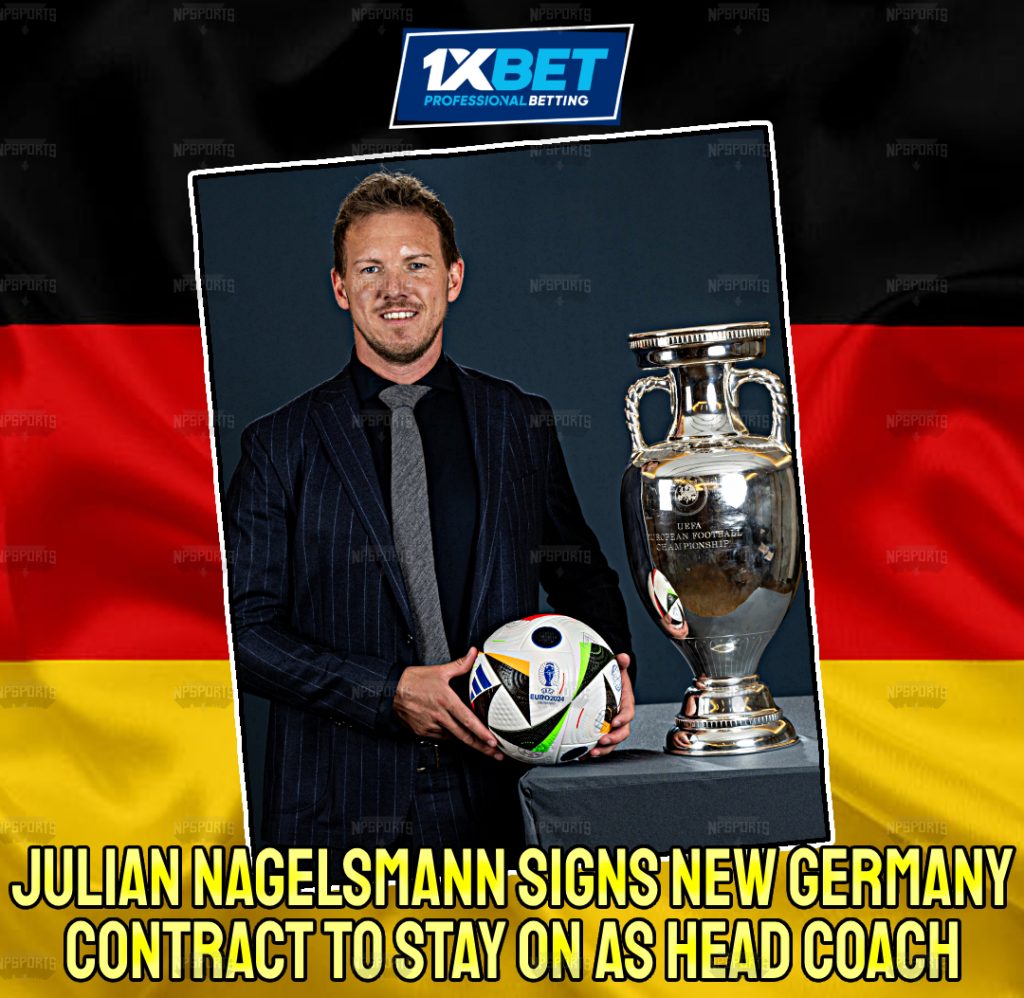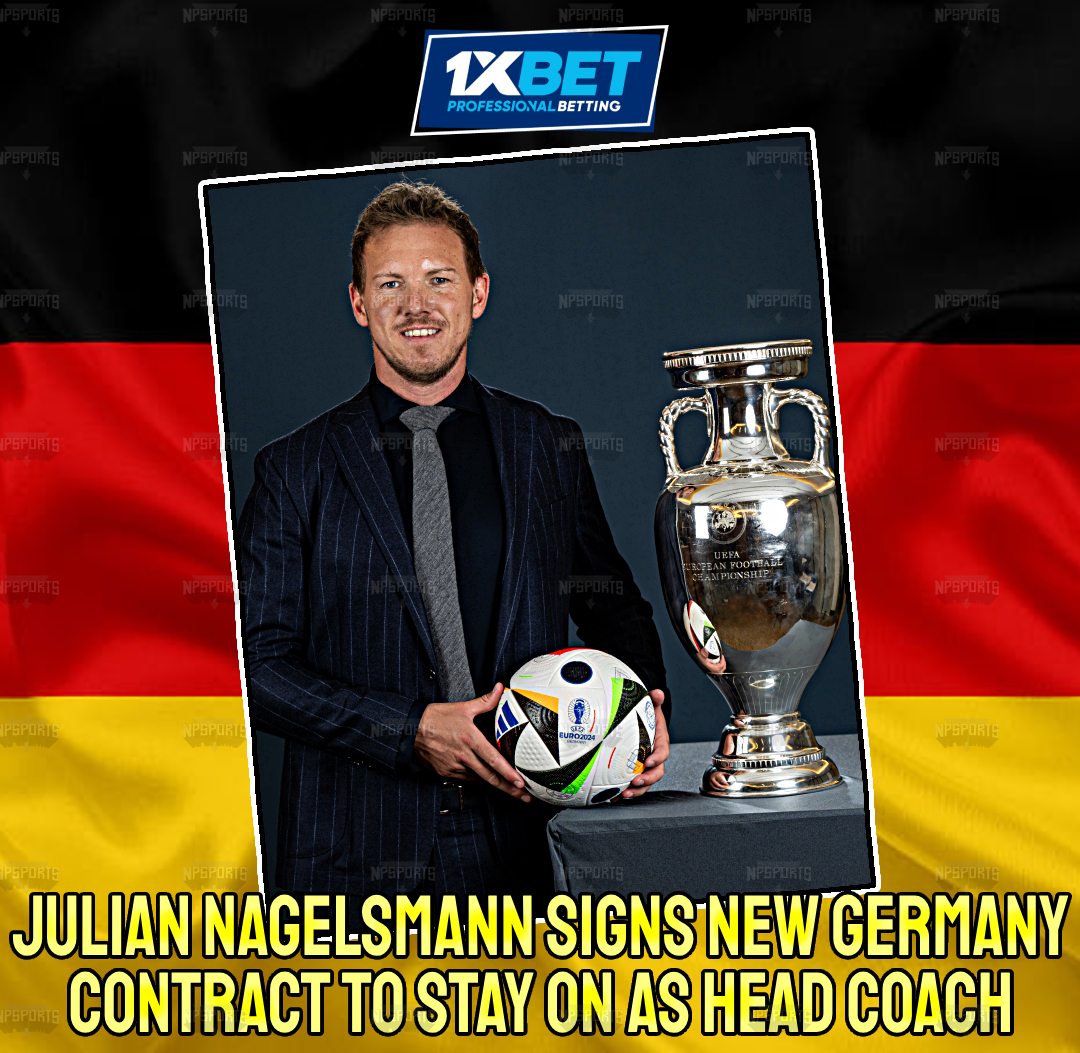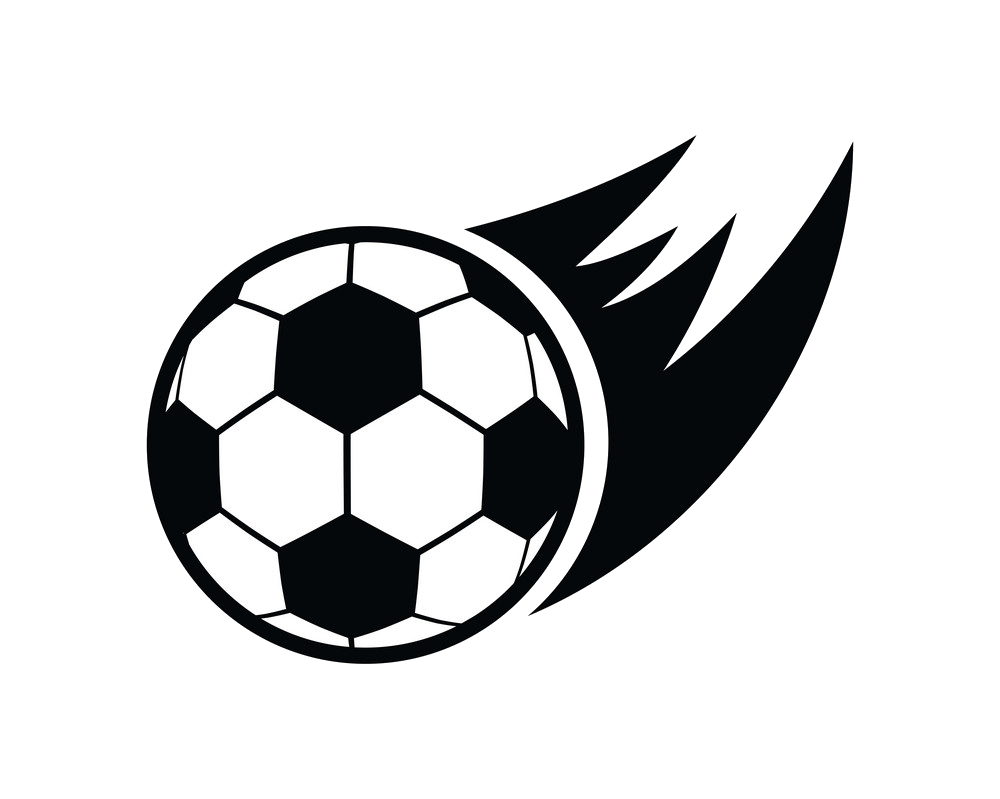Julian Nagelsmann has extended his contract as Germany’s head coach until the end of the 2026 World Cup.

The 36-year-old replaced Hansi Flick in September 2023, signing a short-term contract until after the European Championships this summer.
Julian Nagelsmann has won three of his six matches in command of the team, including victory over France and the Netherlands in March, and will now stay beyond the summer on a long-term contract.
He stated, “This is a decision of the heart. It is a tremendous privilege to be able to train the national team and collaborate with the greatest players in the country. With successful, impassioned performances, we have the opportunity to inspire an entire country.
“The two victories over France and the Netherlands in March moved me deeply. We hope to play a successful home European Championship, and I’m very looking forward to it with my coaching team, Challenge of a World Cup.”
Germany will face Scotland in the tournament’s opener on June 14, followed by Hungary and Switzerland in Group A. They will face Ukraine and Greece in two pre-tournament warm-up games in June.
Nagelsmann formerly led Bayern Munich and spent two years at RB Leipzig, where he guided the team reach the Champions League semi-finals for the first time in its history. He previously completed three years at Hoffenheim.
He has been linked with a return to Bayern, who will be looking for a new manager this summer following Thomas Tuchel’s exit at the end of the season.
Last summer, Nagelsmann drew interest from Chelsea, Tottenham Hotspur, and Paris Saint-Germain before the clubs hired Mauricio Pochettino, Ange Postecoglou, and Luis Enrique, respectively.
Julian Nagelsmann has signed a new contract to remain in charge of Germany through to the 2026 FIFA World Cup
Euro 2024 will begin on June 14, with Germany automatically qualifying as the host country.
Something clicked during the most recent international break, not only on the pitch, but also with the general public.
It helped that Germany put on two terrific performances against France and the Netherlands, two ancient rivals and European powers, but also because the format of those games was so emblematic of Nagelsmann’s style of play.
Germany hasn’t played intricate, vertical, and ambitious football with speed and purpose in a long time. There is a future for this.
Nagelsmann has also reinstated a feeling of meritocracy within the squad. Rewarding in-form players at Stuttgart (Chris Fuhrich, Maximilian Mittlestadt, Deniz Undav, Waldemar Anton, Josha Vagnoman), Hoffenheim (Max Beier), and Heidenheim (Jan-Niklas Beste), while avoiding bigger names at larger clubs (Leon Goretzka at Bayern, everyone other than Nilklas Fullkrug at Borussia Dortmund), has contributed to the sense of renewal.
For the past few years, the national team has struggled with widespread indifference as well as bad form, and the new names and perspectives they represent have provided much-needed rebirth and freshness.
The future looks even brighter because, perhaps most importantly, Nagelsmann has demonstrated that Florian Wirtz and Jamal Musiala, Germany’s brightest hopes, can coexist on the same team.
It was long expected that one would have to defer to the other, but the dual No.10 system tested during the most recent internationals was a complete success.
People want to watch this team, and that’s a victory after a decade of sagging performance standards, controversies, and tone-deaf messaging.





